Focus your strategy and disclosures on ESG topics that matter most.
Save Time, Effort and Cost by Focusing on Key Issues
The concept of Double Materiality (impact and financial materiality) is central to compliance with the Corporate Sustainability Reporting Directive (CSRD) and the European Sustainability Reporting Standards (ESRS). An accurate materiality analysis (impact materiality in accordance with GRI or double materiality as required by the CSRD) directs resources to the ESG topics that are most critical across your organization’s value chain. By identifying and addressing sustainability issues that are material from an impact or/and financial perspective, companies lay the foundation for a successful ESG and sustainability strategy and reporting practice. With a proven track record in collaboratively assessing (double) materiality for many global organizations, Sphera’s sustainability consultants can quickly and cost-effectively help your company identify the sustainability issues that are crucial to your business and your stakeholders, to start or advance your ESG journey.

Gain a New Perspective for an Effective ESG Strategy and Impactful Reporting
Materiality and Double Materiality Assessments offer an opportunity to proactively respond to stakeholder concerns and align your business activities with investors’ needs and expectations. This focused approach enables you to produce more relevant sustainability reports that will drive greater internal and external understanding and commitment to your ESG strategy and action plan.
To sharpen your ESG focus, Sphera’s sustainability experts help your company select potentially material issues, identify relevant stakeholder groups and draft a stakeholder map.
Recognize and Address Risks and Opportunities Early
A Double Materiality Assessment helps you identify the issues or expectations that can have a significant impact on your revenue, brand reputation, operational efficiency and regulatory compliance – now and in the future. This knowledge helps you make better decisions to mitigate risk and maximize your return on investments.
Using Sphera’s approach to Materiality Assessment, we help your company identify the key environmental, social and governance (ESG) topics that are or could become material to your business and your key stakeholders – from the financial and impact perspectives.


Set a Material Reporting Foundation to Comply with Regulations
A Materiality Assessment is an essential component of credible and transparent ESG and sustainability reporting. It is increasingly common and considered best practice in the context of the ESG reporting standards (GRI, SASB/IFRS) and disclosure regulations such as the EU’s CSRD/ESRS.
Sphera’s sustainability experts use the results of the Materiality or Double Materiality Assessment to help you identify aspects and indicators relevant for reporting according to key standards and frameworks.
Explore Other Sustainability Consulting Services
Benefit from the unique combination of software, data and expertise to meet all your sustainability and ESG needs.
Improve your ESG performance by understanding decarbonization, tackling your value chain (Scope 3) impacts and advancing toward a net-zero emissions target.
Calculate the size of your company’s carbon footprint and report it where required.

Are You Ready to enhance your ESG and sustainability performance?
Learn how our Sustainability Consultants can help you accelerate your efforts.
